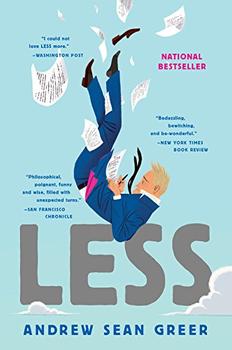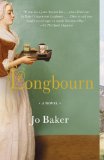Summary | Excerpt | Reviews | Beyond the book | Read-Alikes | Genres & Themes | Author Bio

If nothing else, one has to hand Sebastian Faulks this: he is an incredibly brave writer. Imagine if you will, millions of Harry Potter fans eagerly awaiting a new Hogwarts adventure. Now visualize it being written by someone other than J.K. Rowling. I can't see P.G. Wodehouse fans acting as rabid as Rowling's, but still, this gives you a pretty good idea of the terrain Sebastian Faulks has walked into with his new book, Jeeves and the Wedding Bells. The legendary comic writer English P. G. Wodehouse has thousands upon thousands of adoring fans, and his Wooster and Jeeves series is a signature example of his style. English gentleman Bertram (Bertie) Wooster, and his brainy valet Jeeves have had many adventures together, typically involving Jeeves extricating Bertie out of some pickle.
Wodehouse died in 1975, but his popularity endures. I count myself as one of his most ardent fans, having spent practically all of eighth grade chuckling away while reading one or another of his novels. Bertie and Jeeves and a whole assortment of characters, including Bertie's lovable aunt Agatha and her French chef, Anatole, have a way of endearing themselves into your heart. Each boasts Wodehousian trademarks — a particular style of writing and, most important of all, extremely intricate plotting. To unravel knot A, Jeeves will have to work around knot B, which is somehow entangled with C, which in turn is affected by D. You get the idea. And Jeeves knows just what is needed to loosen the strings and make everything come out all right.
Such is the case in Jeeves and the Wedding Bells. Bertie has been called upon to help his friend Woody with some romantic troubles because Woody's sweetheart, Amelia, has hastily broken off their engagement. Meanwhile, Bertie himself has developed a fondness for Georgiana Meadowes, whom he met while vacationing on the Cote d' Azur. All these characters come together at an estate in the English countryside and it is up to Jeeves to iron out the wrinkles in the misadventures that follow.
In recreating a Bertie and Jeeves adventure, Faulks does his best to stick to the script. Many of his sentences, in fact, seem right out of Wodehouse's playbook. For example: "The pace of life in the old metrop had become a trifle wearing." Or: "At school we had been compelled, on pain of six of the juiciest, to keep a keen eye on our kit…" Yet there's something amiss — the tightly knitted plotting for one. The book is funny, but it's not laugh-out-loud hilarious like the originals are. At best, one can finagle an occasional chuckle. I suspect Faulks was too constrained by the parameters of his construct to really let loose and launch something on his own. By worrying too much about conforming to style, he loses some (although not all) substance. Of course one can hardly blame Faulks for this. This experiment is probably a case of darned if you do and darned if you don't.
Jeeves and the Wedding Bells will work best if read as a stand-alone, without viewing it through the Wodehouse lens. Given that it's supposed to be an homage to the great writer, that might be hard to do. Lovers of the original Bertie and Jeeves series will find Faulks's novel a slight letdown. At best, it might make for a good trip down memory lane. For those who have never read Bertie and Jeeves or, for that matter, any Wodehouse at all, I would recommend you start with the originals.
In the end, Jeeves and the Wedding Bells is a jolly caper down the English countryside — at a time and place far removed from our harried and hectic lives. The mot juste that Jeeves himself might well have supplied for this novel could be: satisfying.
![]() This review was originally published in The BookBrowse Review in November 2013, and has been updated for the
September 2014 edition.
Click here to go to this issue.
This review was originally published in The BookBrowse Review in November 2013, and has been updated for the
September 2014 edition.
Click here to go to this issue.

If you liked Jeeves and the Wedding Bells, try these:

by Andrew Sean Greer
Published 2018
A breakout romantic comedy by the bestselling author of five critically acclaimed novels.

by Jo Baker
Published 2014
Pride and Prejudice was only half the story. Jo Baker dares to take us beyond the drawing rooms of Jane Austen's classic and creates a vivid, fascinating, fully realized world that is wholly her own.
Your guide toexceptional books
BookBrowse seeks out and recommends the best in contemporary fiction and nonfiction—books that not only engage and entertain but also deepen our understanding of ourselves and the world around us.